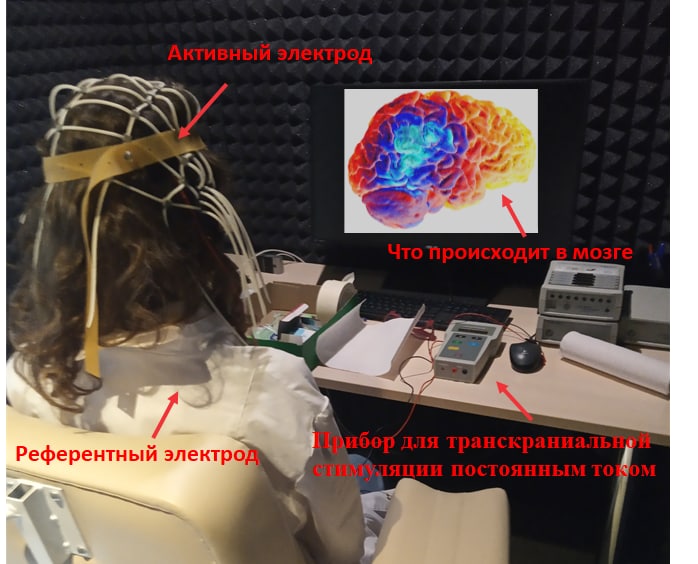Non-specific facilitatory influence of tDCS on novel word acquisition
Researchers from the Laboratory of Behavioural Neurodynamics have studied how transcranial direct current stimulation (tDCS) affect the acquisition of novel words.
This study aimed at systematically assessing the effects of transcranial direct current stimulation (tDCS) on novel word learning. Using a sample of 288 healthy volunteers, we modulated tDCS stimulation regimes (anodal/cathodal/placebo), stimulated hemisphere (left/right), site (Broca/Wernicke/right-hemispheric Broca/Wernicke homologues), and assessed tDCS effects on different learning protocols: fast mapping vs. explicit encoding, with vs. without articulation. After 15 minutes of 1.5 mА tDCS, participants were auditorily presented with 8 novel words repeated 10 times each in a sentential context in association with pictures. Learning outcomes were quantified as reaction times in semantic word-picture matching task. The results showed that tDCS led to facilitation of novel word learning, expressed as faster semantic matching for different tDCS regimes in comparison with placebo, which did not depend on stimulation site or learning regime.

More details about our study can be found in the original research article published by Zhurnal Vysshei Nervnoi Deyatelnosti imeni I.P. Pavlova.
